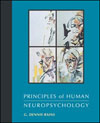Basic Characteristics of Language http://www-lfg.stanford.edu/lfg/clwww.essex.ac.uk/LFG/WhatIsLFG.html
A linguistic theory on grammar. http://www.educ.utas.edu.au/users/tle/Courseware/TEXT/Linguistics.html
A nice summary of English linguistics for non-English speakers. http://www.uni-kassel.de/fb8/lfb/lfb.html
Linguistics for beginners. http://privatewww.essex.ac.uk/~vcook/linggloss.html
A glossary of linguistics terms. Language Development in Children http://www.childdevelopmentinfo.com/development/language_development.shtml
Language development with a chart of development at different ages. http://members.tripod.com/Caroline_Bowen/devel1.htm
Good page on language development. Includes links. http://www.enfagrow.com/language001.html
An interesting guide for new parents on the language development of babies. http://www.psy.pdx.edu/PsiCafe/Areas/Developmental/LanguageDev/
Language development site with several links to articles and books on the topic. http://www.pbs.org/wgbh/aso/databank/entries/bhwats.html
A brief biography of John Watson. http://www.bfskinner.org/
The B.F.Skinner Foundation. http://www.cogsci.soton.ac.uk/~harnad/Hypermail/Thinking.Psychologically/0097.html
An explanation of the difference between Skinner's and Chomsky's theories on language acquisition. http://www.tjhsst.edu/Psych/language/chomsky.html
A basic overview of Noam Chomsky's language theories. http://www.halcyon.com/badams/feral.htm
A guide to the social and language development (or lack thereof) of feral (wild) children. http://www.ling.lancs.ac.uk/monkey/ihe/linguistics/LECTURE4/4feral.htm
Five cases of feral children and their lack of development. http://www.duke.edu/~pk10/language/neuro.htm
An essay on the biological basis of language, particularly in acquisition. http://cognet.mit.edu/MITECS/Entry/savagerumbaugh
Biological and psychological bases of language from MIT. http://www.physiology.wisc.edu/neuro524/Language2/Slide7.JPG
A description of the difference between the left and right planum temporale. Aphasia and Other Language Disorders http://www.braincampus.com/npsych/aphasia.html
A good look at the different types of aphasia. http://www.aphasia.org/NAAfactsheet.html
Good definition of aphasia. Includes a brief listing of the types. http://www.nidcd.nih.gov/health/pubs_vsl/aphasia.htm
A description of aphasia, with contacts for patients listed. http://www.arts.uwa.edu.au/LingWWW/LIN102_99/Notes/aphasia.html
A summary of aphasia. Includes a graph demonstrating how each type of aphasia disrupts different functions. http://www.csuchico.edu/~pmccaff/syllabi/SPPA336/336unit5.html
A list of symptoms related to aphasias. http://www.driesen.com/language_brain_lesions.htm
Brain lesions associated with different language disorders. http://www.csuchico.edu/~pmccaff/syllabi/SPPA336/336unit7.html
Nonfluent aphasias (Broca's and transcortical motor aphasia). http://www.marymt.edu/~psychol/broca.html
A look at the location of Broca's area. http://psych.athabascau.ca/html/Psych289/Biotutorials/10/intro.shtml
The cortical language areas. http://w3.uokhsc.edu/neuro/faculty/apros-mm.htm
A lengthy but good look at the right hemispheric analog to Broca's area and its effect on prosody. http://www.csuchico.edu/~pmccaff/syllabi/SPPA336/336unit8.html
An account of fluent aphasias, including Wernicke's, anomic, conduction, and transcortical sensory. http://www.tchain.com/otoneurology/disorders/hearing/cent_hearing.html
Description of central hearing loss with a definition of pure word deafness. http://empresas.mundivia.es/braincenter/Alexia.htm
Alexia. Language Components http://cognet.mit.edu/MITECS/Entry/caramazza
Lexicon: word storage and retrieval. http://cognet.mit.edu/MITECS/Entry/caplan
The neurological basis of grammar. Dyslexia, Alexia and Agraphia http://gopher.sfn.org/briefings/dyslexia.html
A brief but interesting look at dyslexia. http://faculty.washington.edu/chudler/dysl.html
A basic look at dyslexia and how it is studied. http://www.mindpub.com/art169.htm
Different types of dyslexia. http://www.science.wayne.edu/~dwhitman/alexia.htm
Alexia and agraphia. http://empresas.mundivia.es/braincenter/Agraphia.htm
A definition of agraphia. http://www.science.wayne.edu/~dwhitman/parietal.htm
Parietal lobe dysfunction, including Gerstmann's syndrome and agraphia. http://www.geometry.net/health_conditions/gerstmann_syndrome.php
List of resources and links related to Gerstmann syndrome. Right Hemisphere and Language http://www.psych.ucla.edu/Faculty/ezaidel/default.htm
Homepage of Eran Zaidel, who studied right hemisphere language in split-brain patients. http://members.aol.com/nonverbal2/tone.htm
A look at tone of voice. http://www.med.ohio-state.edu/ame/faculty/clark/templobe.html
Brief, clinical report of a right hemispheric stroke patient with aprosodia. Hemispheric Asymmetries http://www.ed.utah.edu/Psych/CourseMaterials/6410/116410p2.htm
A chart of anatomical asymmetries. http://www.bih.harvard.edu/behavneuro/CVs/Galaburda.html
Galaburda's home page. Galaburda discovered a difference in the cytoarchitechtonics of the planum temporale of the left and right hemispheres. http://cognet.mit.edu/MITECS/Entry/gazzaniga
MIT's look at hemispheric specialization. http://www.neoteny.org/a/lateralization1.html
A collection of excerpts on language lateralization. Evolution of Human Language http://www.onelife.com/evolve/manev.html
A summary of human evolution. http://brainmuseum.org/
Images and information on mammal brains. Includes brain endocasts of extinct vertebrates. http://www.cogsci.soton.ac.uk/bbs/Archive/bbs.wilkins.html
Full version of a paper on the evolution of the brain and language. http://www.good.co.uk/oneworld/lingo.htm
Language emergence. Other Sites of Interest http://www.ling.upenn.edu/courses/ling001/language_brain.html
Language and the brain. | 


 2002 McGraw-Hill Higher Education
2002 McGraw-Hill Higher Education

 2002 McGraw-Hill Higher Education
2002 McGraw-Hill Higher Education